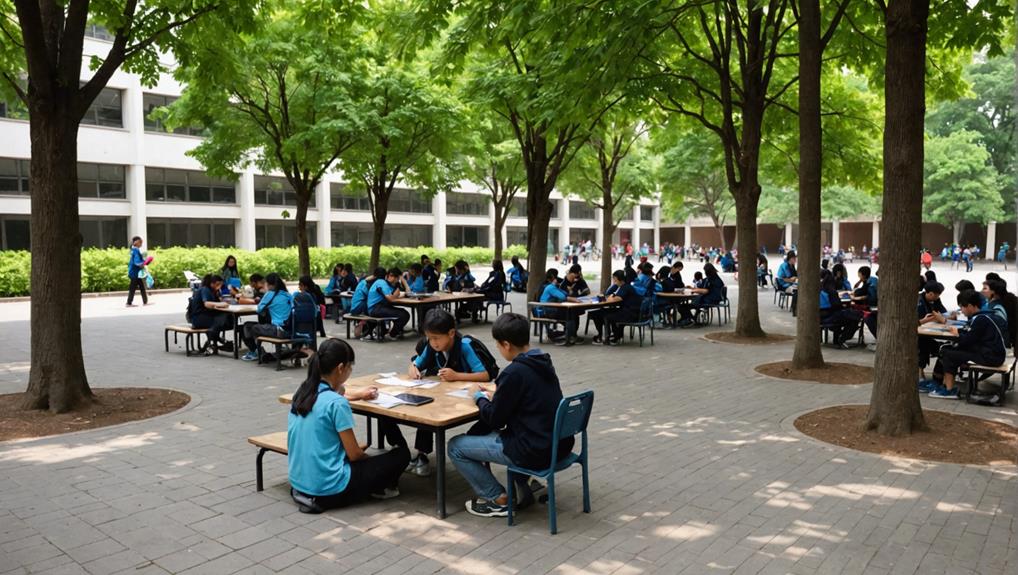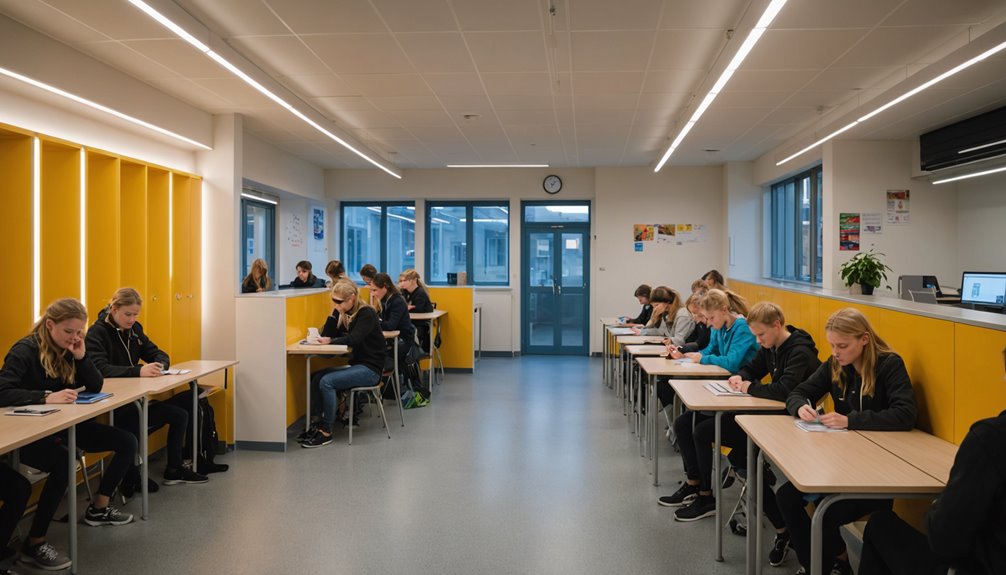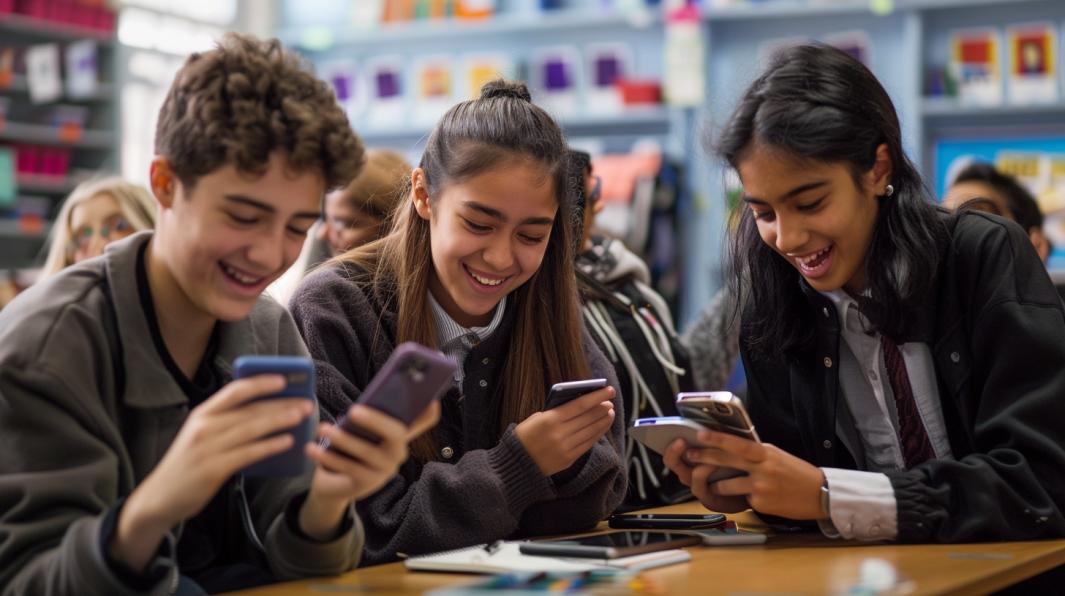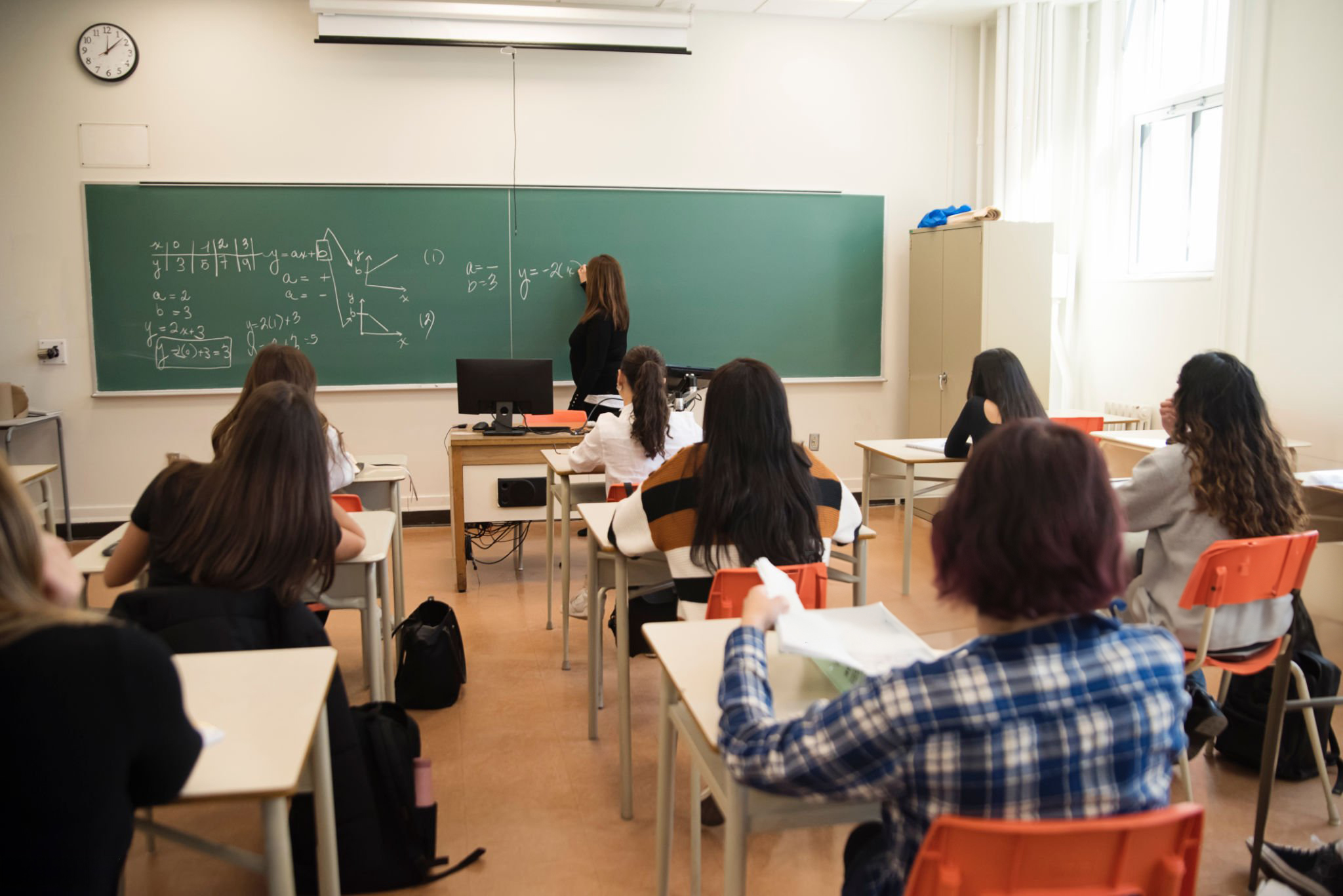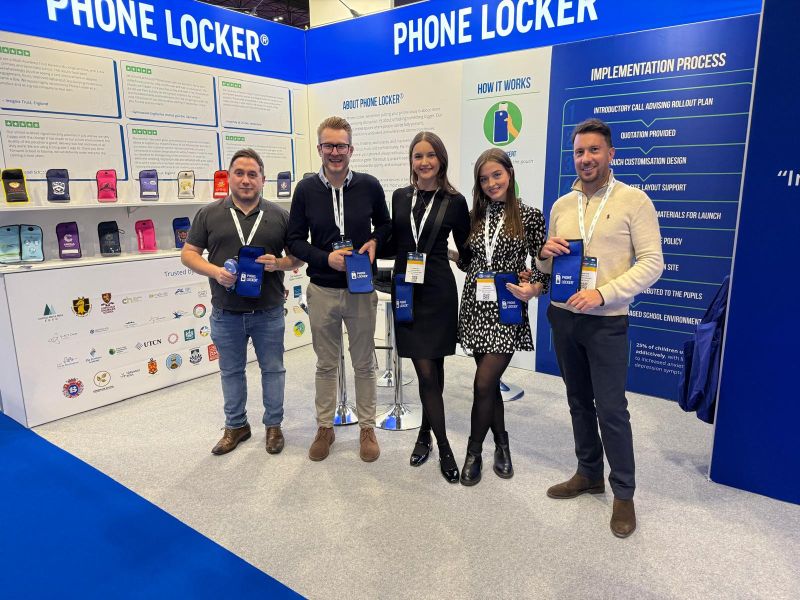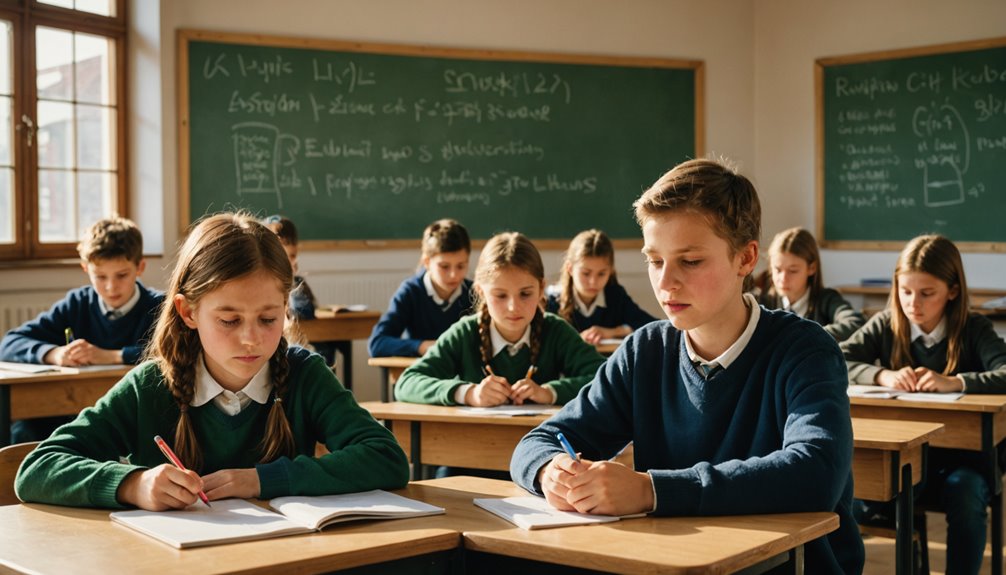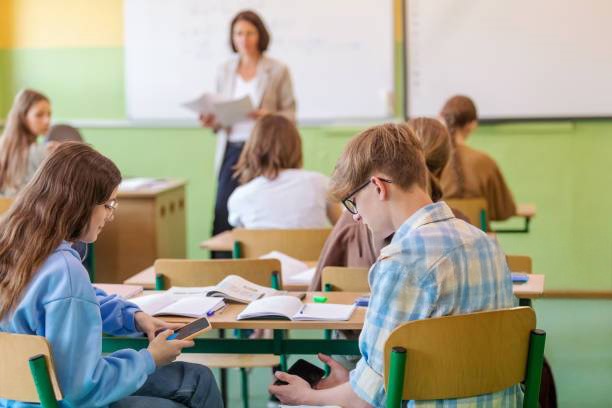Belgian Region Bans Mobile Phone Use at Schools
Belgian Region Bans Mobile Phone Use at Schools
In response to growing concerns about cyberbullying and distractions, Belgium’s French-speaking regions have instituted a ban on mobile phones in schools. This move aims to enhance focus, promote face-to-face interactions, and protect student mental health. While primary and secondary schools must comply, the decentralized Flanders region allows individual schools to set their own rules. Exceptions exist for educational uses and emergencies. Initial observations suggest improved classroom engagement and social connections among students. This policy reflects a broader trend observed across Europe, raising questions about its long-term implications for student autonomy and learning environments. Discover more about its potential impact.
Key Takeaways
- The Wallonia-Brussels Education Network has implemented a ban on mobile phone use in primary and secondary schools to enhance focus and reduce distractions.
- The ban aims to combat cyberbullying, improve mental health, and promote genuine face-to-face interactions among students.
- Schools in Flanders have a decentralized approach, allowing them to set individual rules regarding mobile phone use.
- Exceptions to the ban include educational purposes, medical needs, and urgent situations, ensuring flexibility for necessary use.
- Implementation strategies focus on clear guidelines, teacher training, and collaboration with parents to facilitate a supportive learning environment.
French-speaking regions ban mobile phones in schools
In a decisive move to improve the educational environment, the French-speaking regions of Belgium will implement a complete ban on mobile phones in schools starting in the 2024-2025 academic year. This initiative, led by the Wallonia-Brussels Education Network (WBE), targets primary and secondary schools and will affect about 132,600 students across 373 institutions.
The ban reflects a growing concern over the rising incidents of harassment and cyberbullying linked to smartphone usage in schools. By prohibiting the use of smartphones, the WBE aims to cultivate a safer and more focused educational atmosphere, encouraging students to engage in face-to-face interactions rather than digital distractions.
The policy will require primary school students to leave their smartphones at home to eliminate potential distractions entirely. For secondary school students, while they are also discouraged from bringing phones, those who do must hand in their devices at the start of the school day. Schools will have designated, secure storage spaces for these phones, often in lockers or school-administered storage boxes. There are other options available, such as PhoneLocker’s lockable pouches, which offer a secure, convenient way to store devices discreetly until the end of the day.
Although educational use of smartphones will still be permitted within classrooms, the overarching goal is to minimize distractions and bolster student concentration. As Belgium moves forward with this policy, it positions itself alongside other European nations that have recognized the necessity of regulating technology use in educational settings, paving the way for a more innovative and effective learning environment.

No Uniform Ban in Flanders
How are mobile phone policies influencing the educational landscape in Flanders? In stark contrast to the French-speaking regions of Belgium, where a comprehensive ban on mobile phones in schools is set to be implemented, Flanders retains a more decentralized approach. Here, individual schools possess the autonomy to devise their own policies regarding mobile device usage.
As a result, while some schools have proactively chosen to prohibit smartphones, others have not adopted any formal restrictions. This divergence illustrates the broader educational philosophy in Flanders, where innovation and adaptability are emphasized. The absence of a uniform ban allows schools to tailor their policies according to the specific needs of their student populations, fostering an environment that encourages dialogue among educators, parents, and students about responsible technology use.
Discussions are growing among Flemish educational authorities about a standardized approach to smartphone use. Rising concerns about distractions and cyberbullying are fueling these talks. Educational stakeholders are navigating these complex issues, and their decisions will shape the future of student engagement and learning in Flanders.
Exceptions to the Ban
While the recent mobile phone ban in French-speaking Belgian schools aims to enhance student well-being and minimize distractions, it is important to acknowledge that certain exceptions will be in place to accommodate specific needs. The ban, while strict, recognizes that educational contexts and individual circumstances require flexibility.
| Exception Type | Details |
|---|---|
| Educational Use | Smartphones may be utilized during specific classes, such as media education or AI awareness sessions. |
| Medical Necessities | Students with medical conditions requiring communication with family members will be exempt. |
| Urgent Situations | Immediate access to smartphones is allowed for urgent contact with parents or guardians. |
These exceptions are designed to guarantee that the ban does not hinder educational support for students facing unique challenges. The framework provides a balanced approach, allowing for the integration of technology in meaningful ways while maintaining a focus on student safety and engagement. By clearly defining these exceptions, schools can navigate the complexities of modern education while adhering to the overarching goal of improving learning environments
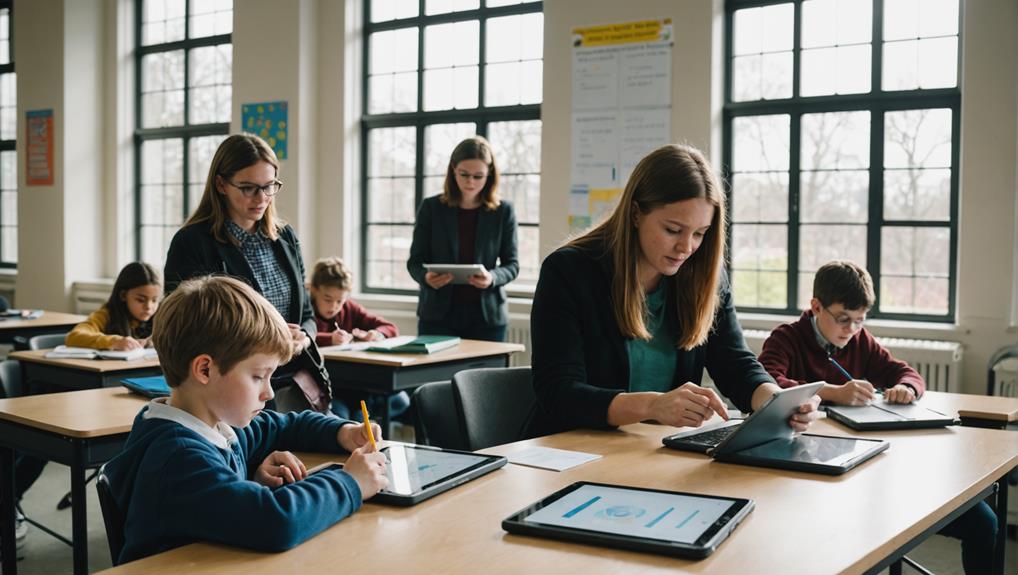
Reasons for the Ban
As concerns over cyberbullying and mental well-being escalate, the decision to implement a mobile phone ban in French-speaking Belgian schools has emerged as an important response to these challenges. The Wallonie-Bruxelles Education Network (WBE) has identified several critical reasons behind this decision:
- Combatting Cyberbullying: Incidents involving students capturing and sharing images of one another have led to a rise in harassment offenses.
- Enhancing Focus: The distraction posed by notifications and social media apps significantly hampers students’ concentration during class hours.
- Mental Health Protection: Excessive screen time has been linked to adverse effects on children’s mental health, making a compelling case for regulation in educational settings.
- Encouraging Real Interactions: The ban aims to foster genuine face-to-face interactions among students, essential for their social development.
The WBE acknowledges that previous, less restrictive measures failed to mitigate these issues. By taking a firmer stance, the ban seeks to create a safer and more conducive learning environment, emphasizing student well-being and academic success while addressing the growing concerns associated with smartphone use in schools.
Potential Benefits and Critiques of the Ban
There is growing recognition of both the potential benefits and critiques surrounding the mobile phone ban in French-speaking Belgian schools. Proponents argue that the ban could enhance the learning environment. By reducing distractions, students may experience improved focus, increased face-to-face interactions, and enhanced social skills. Importantly, a technology-free atmosphere may also contribute positively to the mental well-being of students, mitigating issues such as cyberbullying and harassment.
Conversely, critics raise concerns about the ban’s implications for student autonomy and the role of technology in modern education. Some educators argue that smartphones can serve as valuable educational tools when used responsibly. Additionally, there is apprehension regarding the blanket nature of the ban, which may inadvertently hinder students with disabilities or specific educational needs that necessitate smartphone use.
Ultimately, the success of this initiative will depend on its implementation and the ongoing evaluation of its impact. Engaging parents, educators, and students in dialog about smartphone usage may pave the way for a balanced approach that fosters both safety and innovation in the educational landscape.
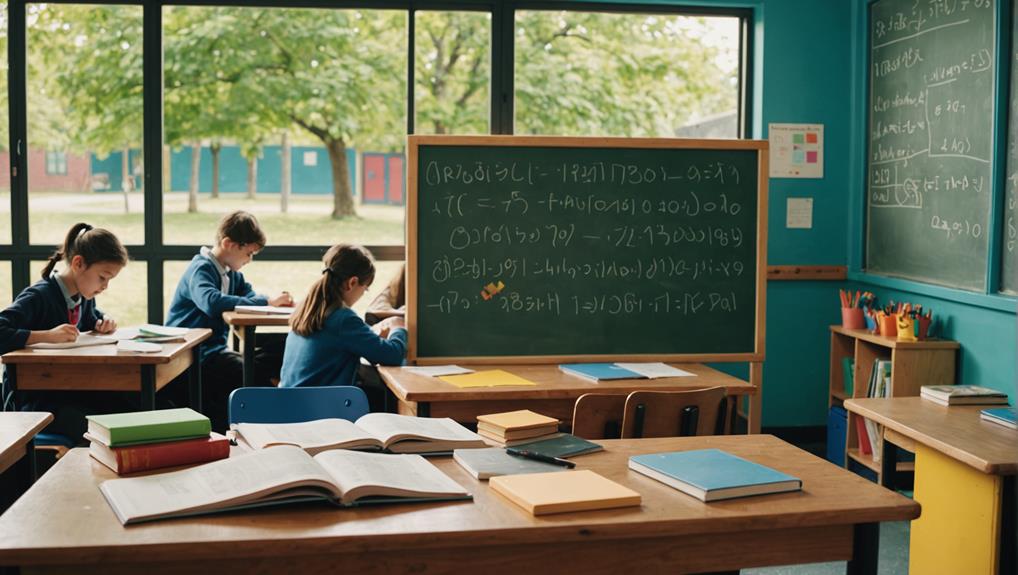
Comparison with Other European Nations
Belgium’s decision to restrict mobile phone use in schools reflects a broader European shift as several countries adopt measures to manage smartphone use among students. France pioneered this approach, implementing a nationwide ban on mobile phones in primary and middle schools as early as 2018. This French policy aimed to reduce classroom distractions, improve academic focus, and encourage face-to-face interactions among students. Reports indicate that this ban has led to better concentration in classrooms and enhanced social connections during breaks, with students engaging more directly with one another.
Similarly, the Netherlands has opted for a partial ban that prohibits smartphone use in classrooms unless needed for educational purposes. This balanced policy recognizes the educational benefits of digital tools while preventing interruptions from recreational phone use. Italy also has similar restrictions, where non-educational use is discouraged while structured, supervised use of devices is allowed for learning purposes.
By enacting restrictions within its French-speaking regions, Belgium seeks to replicate these successes and improve students’ academic focus and social engagement. Following the examples set by neighboring countries, Belgium aims to boost educational outcomes, reduce cyberbullying, and foster a healthier school environment, while still leveraging technology for constructive learning experiences.
Creating Focused Classrooms with the PhoneLocker Pouch
As schools across Belgium adopt new policies to limit smartphone use, finding effective ways to store these devices becomes essential. PhoneLocker offers a practical and innovative solution with its lockable phone pouches. Designed specifically for educational environments, these pouches not only provide a secure place for phones but also block signals, ensuring that students remain free from distractions during school hours.
The PhoneLocker pouch offers many benefits, it allows students to easily insert their phones, lock them securely, and retrieve them at the end of the day, all while maintaining focus on their studies. With features like customizable printing, the pouches can also promote school branding or important messages. As schools implement regulations to foster a more productive learning environment, PhoneLocker stands out as a reliable partner in managing smartphone use effectively.
For more information about how PhoneLocker can benefit schools, contact us.
Frequently Asked Questions
The enforcement of the ban will involve strict regulations, including mandatory phone confiscation during school hours, monitored compliance, and collaboration with educators to guarantee adherence, thereby fostering a focused and engaging learning environment.
Consequences for violating the smartphone ban in schools may include confiscation of devices, detention, and mandatory parental meetings. Such measures aim to reinforce policy adherence and cultivate a focused, distraction-free educational environment promoting student well-being and engagement.
Like navigators charting new waters, educators will receive targeted training to effectively implement the smartphone ban. This initiative aims to equip teachers with strategies that foster a conducive learning environment while promoting responsible technology use among students.
Parents will be informed about the ban through extensive communication strategies, including newsletters, informational meetings, and digital platforms. This approach guarantees clarity regarding implementation, purpose, and support for students during the shift to a technology-regulated environment.
Future reviews of the ban are anticipated, focusing on its effectiveness in enhancing student behavior and academic performance. These evaluations will involve collaboration among educators, parents, and policymakers to adapt strategies for best student well-being.
Conclusion
In a surprising move, the Wallonia-Brussels Education Network has chosen to restrict mobile phone use in schools. This policy aims to create a distraction-free environment. It seeks to combat cyberbullying and improve student interactions. Ironically, it highlights the challenge of teaching a tech-savvy generation in a more analog way. By emphasizing face-to-face communication over digital distractions, the policy may foster a sense of community. However, this comes as the outside world continues to grow increasingly reliant on mobile technology.


